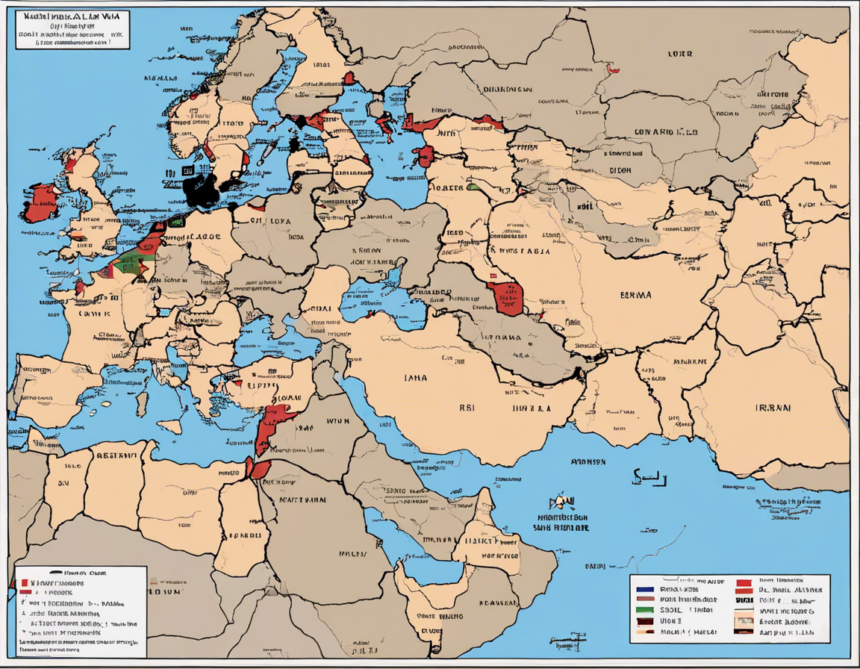In recent years, the ongoing tensions between Iran and Israel have escalated, sparking concerns about a potential war between the two nations. The complex geopolitical landscape of the Middle East has contributed to the animosity between these two regional powers, with various factors driving the conflict. Understanding the historical context, current dynamics, and potential consequences of an Iranian-Israeli war is crucial for grasping the gravity of the situation and the implications for the wider region.
Historical Background
The animosity between Iran and Israel can be traced back to the Iranian Revolution of 1979 when the Islamic Republic of Iran emerged as a staunch opponent of Israel. Iran’s support for Palestinian militant groups such as Hamas and Hezbollah, its hostile rhetoric towards Israel, and its nuclear ambitions have further strained relations between the two countries. Israel, on the other hand, regards Iran as a significant security threat due to its nuclear program and support for anti-Israeli proxies in the region.
Current Dynamics
Recent developments, including Iran’s increasing influence in the region, its military presence in Syria, and Israel’s airstrikes targeting Iranian assets in Syria, have heightened tensions between the two countries. The U.S. withdrawal from the Iran nuclear deal in 2018 and the subsequent reimposition of sanctions on Iran have also exacerbated the situation. Both countries have engaged in a war of words, with Iranian leaders threatening to annihilate Israel and Israeli officials warning of military action to prevent Iran from acquiring nuclear weapons.
Potential Consequences
An Iranian-Israeli war would have grave consequences for the region and the global economy. The conflict could escalate into a wider regional war involving other countries, especially those aligned with either Iran or Israel. The Strait of Hormuz, a critical waterway for global oil shipments, could be disrupted, leading to a spike in oil prices and jeopardizing international energy security. The humanitarian impact of a war would be devastating, with civilian casualties, displacement, and economic chaos.
The Role of External Powers
External powers, including the United States, Russia, and European countries, play a significant role in shaping the dynamics between Iran and Israel. The U.S.’s support for Israel and its “maximum pressure” campaign against Iran have emboldened Israel and increased the pressure on Iran. Russia’s presence in Syria adds another layer of complexity to the situation, as it seeks to balance its relations with both Iran and Israel. European countries have tried to salvage the Iran nuclear deal and prevent further escalation, but their efforts have had limited success.
Mitigating the Risk of War
Efforts to prevent an Iranian-Israeli war should focus on diplomatic solutions, de-escalation measures, and confidence-building initiatives. Dialogue between the two countries, mediated by third parties, could help address their grievances and reduce tensions. International mechanisms, such as the United Nations and regional organizations, should play a proactive role in promoting peace and security in the Middle East. Economic incentives for both Iran and Israel to cooperate rather than confront each other could also help reduce the risk of war.
Conclusion
The prospect of an Iranian-Israeli war looms large over the Middle East, with potentially catastrophic consequences for the region and beyond. Understanding the historical context, current dynamics, and potential consequences of the conflict is essential for policymakers, analysts, and the general public. Diplomatic efforts, de-escalation measures, and international cooperation are crucial in preventing a destructive war and promoting peace and stability in the region.
FAQs:
- What are the main reasons behind the tensions between Iran and Israel?
-
The historical animosity, Iran’s support for anti-Israeli groups, Israel’s security concerns, and Iran’s nuclear program are key reasons for the tensions.
-
How do other countries, such as the U.S. and Russia, influence the Iranian-Israeli conflict?
-
The U.S. supports Israel and pressures Iran, while Russia’s presence in Syria complicates the situation by balancing relations with both countries.
-
What are the potential consequences of an Iranian-Israeli war for the region and the global economy?
-
The war could lead to wider regional conflicts, disruptions in oil shipments, humanitarian crises, and economic instability globally.
-
What measures can be taken to prevent an Iranian-Israeli war?
-
Diplomatic dialogue, de-escalation efforts, international mediation, and economic incentives for cooperation can help mitigate the risk of war.
-
How can ordinary citizens contribute to peace-building efforts between Iran and Israel?
- Supporting diplomatic initiatives, raising awareness about the consequences of war, and advocating for peaceful solutions can empower citizens to contribute to peace-building efforts.

